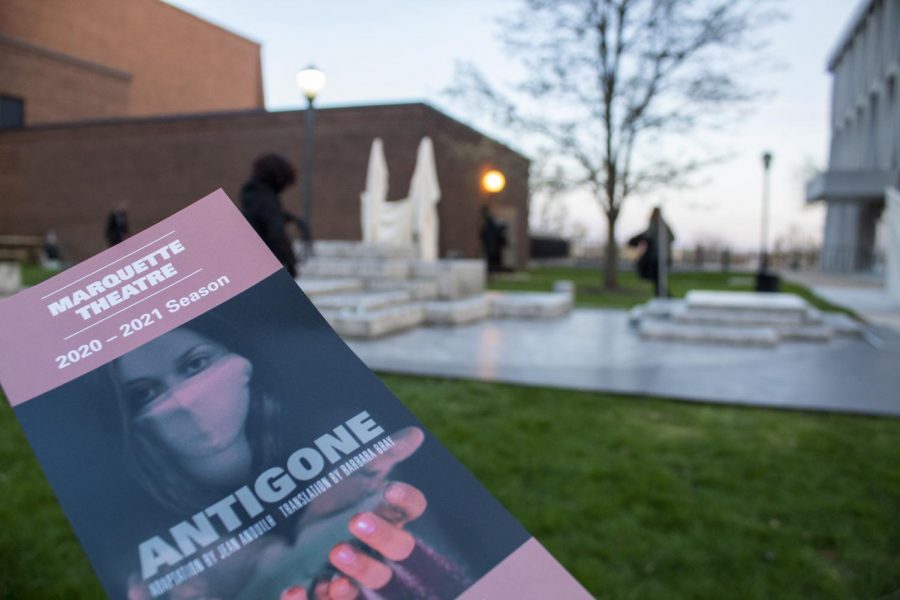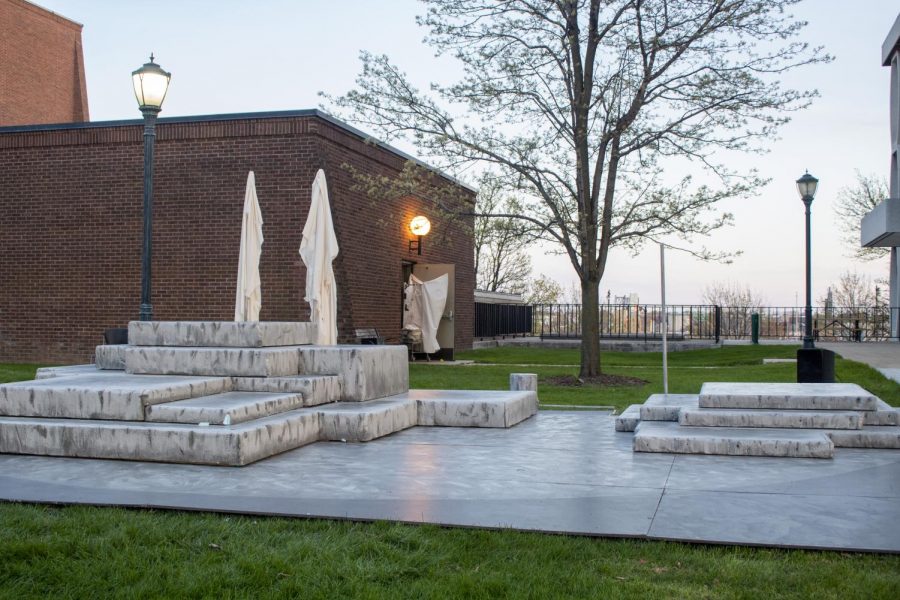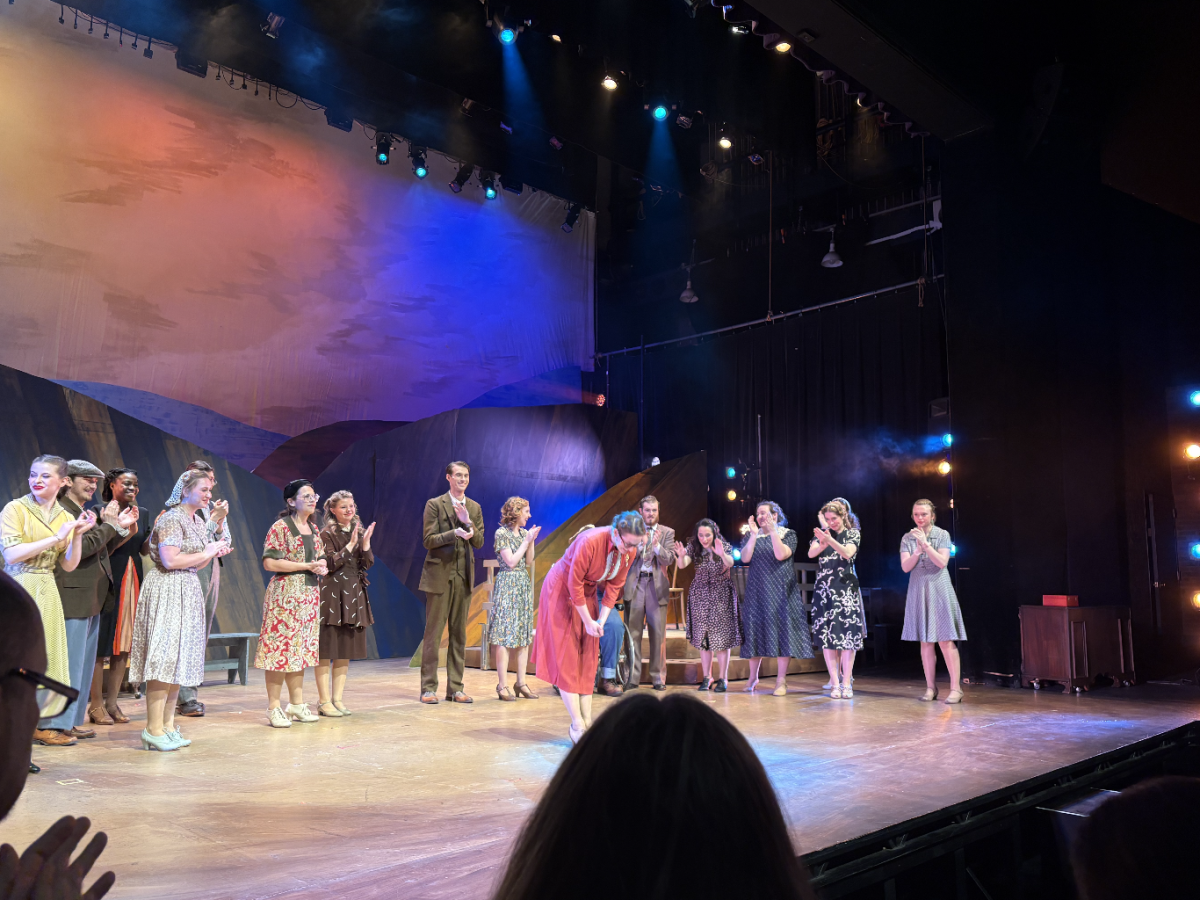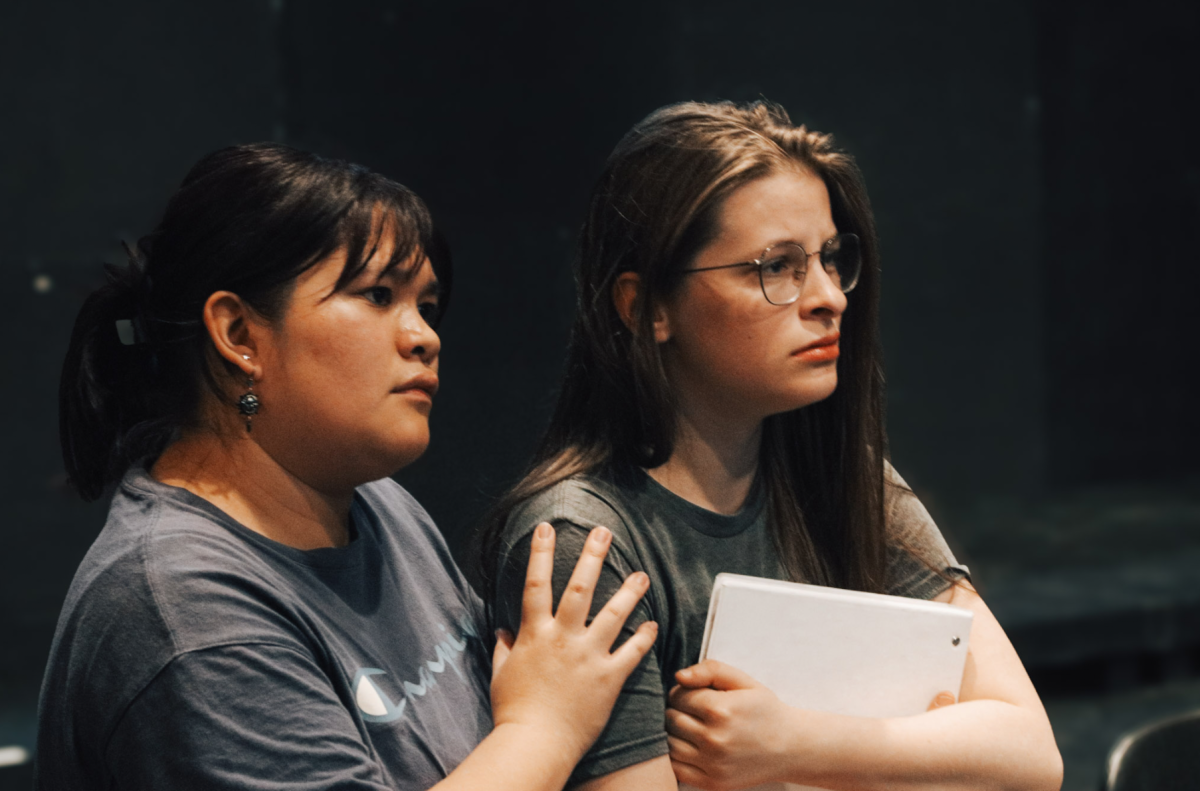Marquette Theatre’s ‘Antigone’ opened its first show this weekend. A 1944 adaptation by Jean Anouilh of Sophocles’ Greek tragedy, ‘Antigone’ tells the story of Antigone, daughter of Oedipus, and her quest to give her brother Polynices a proper burial, which has been outlawed by her uncle, King Creon, punishable by death.
Anouilh’s version of the ancient Greek tale follows the same basic plot as Sophocles’ play, with some differences – most obviously, a more modern dialogue. According to the play’s program, Anouilh’s ‘Antigone,’ first opening in Nazi-occupied France, put forth themes of standing against moral injustices, even when it means breaking the law and risking one’s life.
Due to the COVID-19 pandemic, Marquette Theatre held the production outside on the corner of Central Mall near the Helfaer Theatre and Lalumiere Language Hall. Personally, I was very excited to hear that ‘Antigone’ would be an outdoor production. I think there is something enticing about a play that relies on nature for its stage lights and adapts to whatever weather conditions arise. It feels more casual, more flexible and more accessible for the audience. It also feels more authentic to the original Sophocles play that was performed around 440 B.C. on the open-air stages of Athens.
The weather on the Saturday evening performance was slightly chilly, but I was comfortable wearing a jacket and hat. Some audience members brought blankets for extra warmth. I did wonder if there was a backup plan for rain or heavy winds during a performance, but fortunately during the performance I attended, the sky was cloudless and there was only a gentle evening breeze.
While outdoor theater productions sometimes rely on mere vocal projection, the actors in ‘Antigone’ all wore masks, so microphones and speakers at the front of the small stage allowed the audience to hear the dialogue. The speakers additionally played music at points, and drums played by actors off-stage helped set the mood and signify scene changes.
The show’s creativity for a pandemic-safe show extended to the characters’ interactions. The actors remained socially distant, so whenever two characters were supposed to be touching, the actors mimicked the same movements they would use if they had been standing next to each other, but while standing apart. Holding hands was shown by actors holding up their arms at the same height and looking into each other’s eyes; a guard holding a prisoner was displayed by the guard standing on a platform behind the prisoner, and the prisoner holding their arm behind their back; In one scene, Creon grabbed a guard’s throat in intimidation, while the guard gasped and grabbed at their throat as they stood six feet away, Darth Vader-style.
The effect is something that fits in perfectly with the play’s minimalistic set, basic costumes and script that introduces the performers as performers rather than as the actual characters themselves.
The set consisted of small platforms and metal poles with cream-colored sheets on them. The poles and sheets were movable between scene changes, and were at times creatively incorporated into the storytelling, especially at the end of the play when the sheets are incorporated into a dramatic reveal. The actors dressed in all black with simple clothing items they could easily switch out if they played more than one part. And the play is narrated by three chorus members, who throughout the show provide backstory, communicate dialogue with characters and give reminders to the audience that they are watching a tragedy, and thus already know to an extent what the story’s conclusion will be.
I’ll be honest, Lalumiere is an unexpected backdrop for a theater performance. But with the orange glow of the setting sun reflecting in the building’s windows and the sounds of birds chirping overhead, it was easy to get pulled into the story. Even the distant sounds of campus at times coincidentally played into the show’s plot; at one point, a dramatic line was delivered and, as if on cue, the gong of the church bells went off ominously in the distance.
As the sun lowered, the temperature dropped and audience members bundled tighter in their jackets and blankets. But to be honest, I was too invested in the story to really notice the cold. The show’s scenes are dialogue-heavy, with tension arising not from action but from conversation between characters. The show’s longest scene is between Antigone, played by junior in the College of Communication Amelia Thompson, and Creon, played by junior in the College of Communication Vivian Romano, and its climax builds from the two characters’ long, expressive monologues and heated arguing. Thompson perfectly plays Antigone as a headstrong teenager with unwavering morals, dead set on her fate. And Romano plays Creon – a role typically cast to a man – with a confidence and eloquence that had me genuinely uncertain if the show had a protagonist and antagonist, or just two individuals with conflicting world views.
The entire eight-person cast provided standout performances. First-year in the College of Communication Nathan Berry’s Haemon was strong and dedicated to Antigone, believably expressing both his love for her and his confusion at her adamance to break the law, knowingly throwing away their future together. Sophomore in the College of Health Sciences Giorgia Cozzo plays Ismene, Antigone’s sister, with tenderness and a genuine sincerity, and additionally lends her voice to a solemn a capella song near the conclusion of the play. Comedic relief was provided from characters like the Nurse and the guard Jonas – both played by sophomore in the College of Communication Sam Gutierrez.
Marquette Theatre’s production of ‘Antigone’ is directed by Grace DeWolff, with scenic design by Stephen Hudson-Mairet, costume design by Debra Krajec and sound design by senior in the College of Communication Derly Vela. The first three performances were this weekend, April 16-18, and the remaining performances are Friday, April 23, Saturday, April 24 and Sunday, April 25 at 6 to 7:25 p.m.
Tickets cost $12 each, and can be purchased online.
If you have the chance this weekend, I would highly recommend getting out to see this show. And I hope that Marquette Theatre continues to incorporate outdoor performances after the pandemic ends.
This story was written by Kelli Arseneau. She can be reached at kelli.arseneau@marquette.edu.







